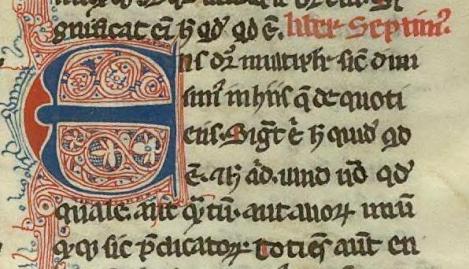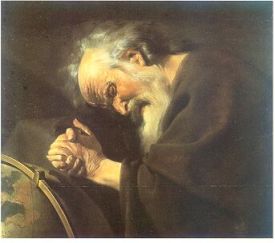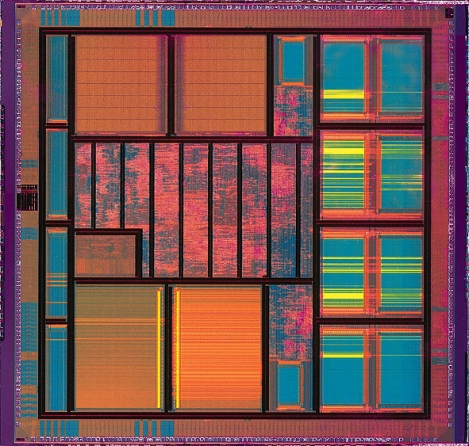Journal of a Departed Friend, Part 3

Aristotle's **Metaphysics** (image by Peter Damian)
Sister Alma Rose recently received part of a journal from the year 1985 that was bequeathed to her by an old friend. Here is an excerpt:

There is nothing permanent except change. —Heraclitus

Heraclitus, 535-475 BCE, by Johannes Moreelse
O ye ancients, you had no idea! You, Heraclitus, what did you know in the sixth century BCE of lasers or nuclear power or even of sewing machines and polyester?
What of moving across the North American continent four times in ten years?
What of endemic divorce or heroin addiction or John Holmes, radioactive fallout, toxic waste, latchkey children, the microchip?

Integrated circuit of Atmel Diopsis 740 System on chip showing memory blocks, logic and input/output pads around the periphery

The Duke Prosper Oak, Belgium (photo by Jon-Paul Grandmont)
They have cut down the oak tree outside the bay window of the house where I grew up. I suppose that it was causing problems with the plumbing or leaks into the basement. But it is surely gone, as are the mother and father who raised me there, the neighbors who chased me away from their rosebushes or held me on their laps and told stories, the misanthropic widow whose porch was always dark on Hallowe’en.

Little boys' walnut cache
There is now, behind our house, a walnut tree, and every year the walnuts are not cracked and eaten, but gathered and stockpiled by little boys who pretend to be squirrels or chipmunks, or else the boys are pirates and the nuts become rubies and gold nuggets.

The Maria Valeria Bridge, connecting Hungary to Slovakia (photographer, Alan Ford)
Well, maybe so, but I do a lot of swimming upstream and down trying to change things and being bashed with flotsam and jetsam in the process. I like the thought of the river, though, despite the bashing; it makes better poems about life than do caves and sailing ships.

-
Publish your Little Book in an easy little way
- A Prayer for Every Morning
- FREE Learn to Meditate
- Request Prayer and Pray for Others — Click on link OR leave your request as a Comment on this blog
- Sample diverse blogs at Alpha Inventions, Condron.us
- Now you can own Daddy Pete, featuring Sister Alma Rose and Fanny McElroy — Part 1 of The Ancients



 And think of all those violins, violas,
And think of all those violins, violas,


